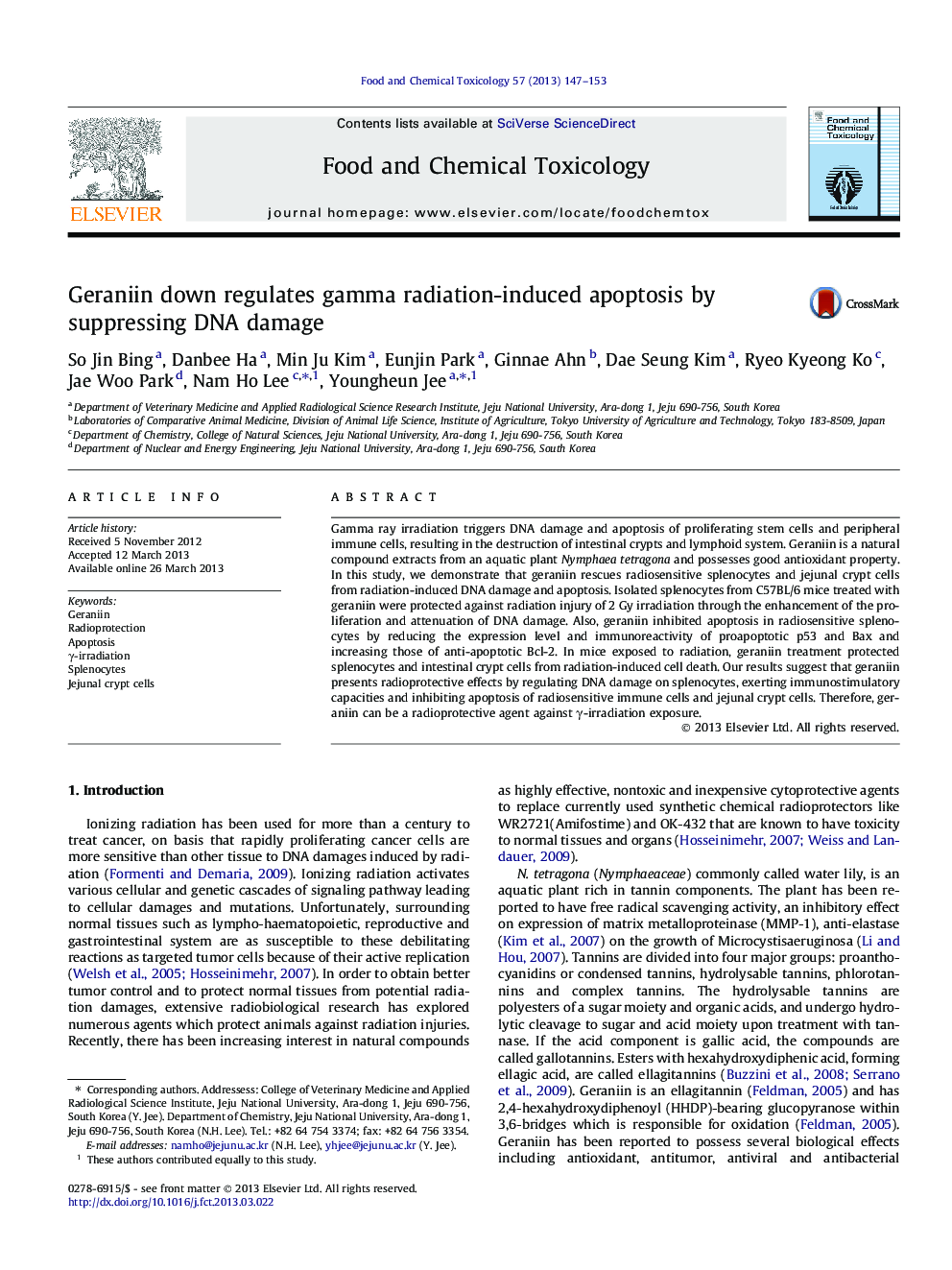| Article ID | Journal | Published Year | Pages | File Type |
|---|---|---|---|---|
| 5852091 | Food and Chemical Toxicology | 2013 | 7 Pages |
â¢Geraniin raise an ionizing radiation-induced apoptotic threshold.â¢Geraniin regulates p53-dependent apoptosis of splenocytes after irradiation.â¢Geraniin attenuate radiation-induced damage by reducing DNA breakage and apoptosis.â¢Geraniin protects mouse splenocytes and jejunal crypt cells from ionizing radiation-induced DNA strand breakage.
Gamma ray irradiation triggers DNA damage and apoptosis of proliferating stem cells and peripheral immune cells, resulting in the destruction of intestinal crypts and lymphoid system. Geraniin is a natural compound extracts from an aquatic plant Nymphaea tetragona and possesses good antioxidant property. In this study, we demonstrate that geraniin rescues radiosensitive splenocytes and jejunal crypt cells from radiation-induced DNA damage and apoptosis. Isolated splenocytes from C57BL/6 mice treated with geraniin were protected against radiation injury of 2 Gy irradiation through the enhancement of the proliferation and attenuation of DNA damage. Also, geraniin inhibited apoptosis in radiosensitive splenocytes by reducing the expression level and immunoreactivity of proapoptotic p53 and Bax and increasing those of anti-apoptotic Bcl-2. In mice exposed to radiation, geraniin treatment protected splenocytes and intestinal crypt cells from radiation-induced cell death. Our results suggest that geraniin presents radioprotective effects by regulating DNA damage on splenocytes, exerting immunostimulatory capacities and inhibiting apoptosis of radiosensitive immune cells and jejunal crypt cells. Therefore, geraniin can be a radioprotective agent against γ-irradiation exposure.
